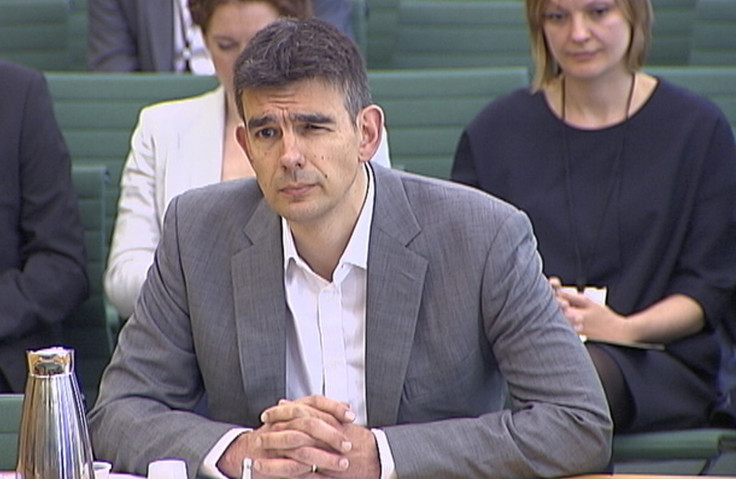Google (GOOG) Claims It’s Paying Fair Share Of UK Taxes (As Exec Says He Doesn’t Know How Much He’s Paid)

Google is defending its tax practices in Britain, saying it is paying its fair share of corporate tax at a rate of 20 percent like all other businesses. At the same time, the head of Google’s European operations revealed, apparently because paydays can be so lucrative at the search giant, he doesn't know what his salary is.
Representatives from Google came before the Public Accounts Committee (PAC) Thursday morning to defend the company’s tax settlement with the British government and faced a barrage of questions from politicians who say Google should be paying more tax in Britain and is using creative accounting on a global scale to artificially lower its tax bill.
“We want to pay the right amount of taxes, we believe in paying our taxes, and we want to be seen to be paying the right amount of tax,” Matt Brittin, Google’s head of operations for Europe, the Middle East and Africa, told the committee.
Google tax chief Tom Hutchinson said Google was paying tax globally at a rate of 19 percent based on figures for the last five years. He said he believes that’s fair. “We are paying the right amount of taxes,” Hutchinson told the committee.
Google announced last month it had agreed to a settlement with Her Majesty’s Revenue and Customs (HMRC) following a six-year audit of the company's accounts. The result was that Google would pay $185 million in back taxes covering the last decade, though most of the taxes relate to the period since 2012.
Hutchinson revealed Thursday of the total figure, $26 million was interest with the rest made up of tax, with no penalties or fines levied. When Jim Harra, HMRC’s director general of business tax, was asked about this, he said no penalties were paid because Google had shown it had taken “sufficient care” in coming up with the amount of tax it originally paid.
The settlement — which some have termed a “sweetheart deal” — was lauded by Chancellor of the Exchequer George Osborne as a “major success” when he announced the deal at the World Economic Forum in Davos last month. The comments by Osborne, in the wake of Google's press release announcing the deal, led some to accuse the British government of having a cozy relationship with the internet firm.
Both Google and HMRC strongly Thursday denied any political influence in the settlement although Brittin did admit that during the more than 20 official meetings Google had with British politicians in the last three years, the issue of tax was almost certainly mentioned.
In an article published in the Telegraph hours before Brittin appeared before the PAC, the head of Google's EMEA operations said international tax laws need to be rewritten. “We have long been in favor of simpler, clearer rules, because it is important not only to pay the right amount of tax, but to be seen to be paying the right amount.”
Google pays tax on a portion of the profits it earns in Britain. The confusion arises in the case of Google and other internet companies because the amount of tax paid on those profits is related to where the value is created. In Google’s case, it says the value is based on its search engine and not its British sales arm. “Most of the value is created by the product — search — which is developed and built in the U.S.,” Brittin told the committee. Google employs more than 20,000 engineers in the U.S. compared to 1,000 in Britain.
Labour MP Meg Hillier, who chairs the PAC, asked if Brittin understood the anger taxpayers felt about the perception Google was not paying enough tax in Britain, and asked him to disclose how much he gets paid. Brittin responded by saying he didn't know. “I don't have that figure, but I'll happily provide it.”
Hillier said: “You don’t know what you get paid, OK. Out there, taxpayers, our constituents, are very angry. They live in a different world, clearly, if you can’t even tell us what you’re actually paid.”
© Copyright IBTimes 2024. All rights reserved.






















